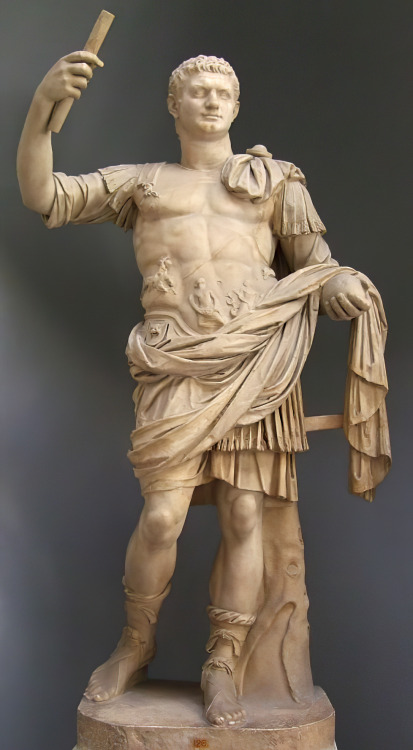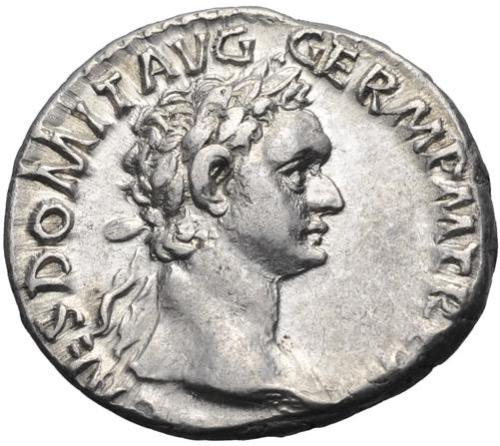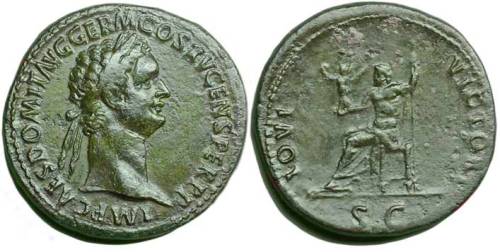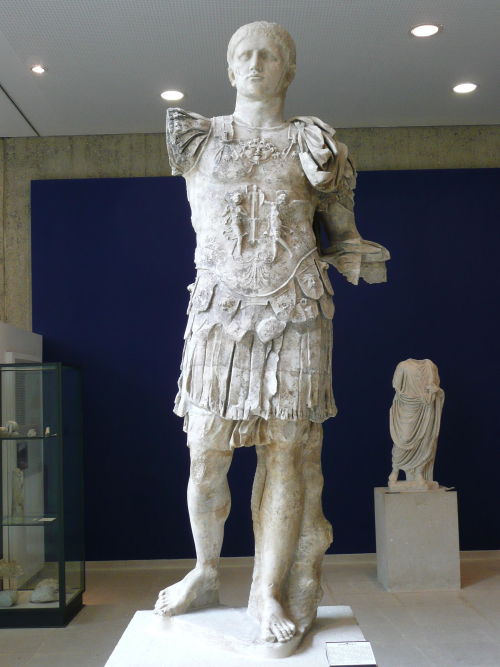By Samantha Hughes-JohnsonOn this day (14 September) in 81 A.D., Domitian became Roman Emperor. The
By Samantha Hughes-JohnsonOn this day (14 September) in 81 A.D., Domitian became Roman Emperor. The last member of the Flavian dynasty, Domitian (Caesar Domitianus Augustus) was the second son of Emperor Vespasian and brother to the Emperor Titus, whom he succeeded when the latter died unexpectedly from a fever. Prior to taking the imperial throne, Domitian had acted as a praetor (a judicial officer) and was appointed as consul on six separate occasions. According to the Roman historian Suetonius, Domitian (as a young aristocrat) possessed a “lawless” streak that foreshadowed his reign, which would ultimately be remembered mainly for the Emperor’s cruelty and viciousness. Suetonius however, also informs his readers that there were many positive aspects to Domitian’s rule. He “presented many extravagant entertainments in the Colosseum and the Circus… nor did he ever forget the Games given by the quaestors.” The Emperor also “founded a threefold festival of music,” dedicated to the Capitoline Jupiter. Domitian additionally embarked on a programme to restore some of Rome’s most important buildings, while adding to the city’s architecture with new construction projects. These ventures included, “a temple to Jupiter the Guardian on Capitoline Hill, the Forum of Nerva, the Flavian Temple, a stadium, a concert hall and [an] artificial lake for sea-battles.”In the theatre of war, Domitian also led various campaigns: some that were perceived as justified and others, which were considered unnecessary. For instance, Suetonius calls the conflict against the Chatti, “uncalled for” and the war against the Sarmatians, justified. The Roman historian also claimed that “Domitian made a number of social innovations.” These included cancelling the public grain issue, banning castration and increasing the number of official chariot teams from four, to six. Conversely, Domitian’s cruelty was infamous and well-reported. Suetonius divulges that “he executed [a] beardless boy, in distinctly poor health, merely because he happened to be a pupil of the actor Paris.” When the emperor disagreed with the writings of Hermogenes of Tarsus, the Greek rhetorician was executed and “the slaves who had acted as copyists were crucified.” Members of Roman civic society also lost their lives during Domitian’s reign of fear. Suetonius reveals that Civica Cerealis, Acilius Glabrio and Salvidienus Orfitus were “accused of conspiracy” and summarily executed. Aelius Lamia however, was killed because he voiced a sarcastic comment and Salvius Cocceianus “died because he continued to celebrate the birthday of the Roman Emperor Otho.”Consequently, Domitian’s cruelty and autocracy earned him the disdain of the senate and he was assassinated on 18 September, 96 A.D. References: Suetonius, The Twelve Caesars, trans. Robert Graves, revised with an introduction by Michael Grant, London: Penguin Books, 1979, pp. 303-319.Images: Statue of Emperor Domitian, 1st Century A.D., marble, Vatican Museums, Vatican City, Rome. Wikimedia Commons.Bust of Domitian, 1st Century A.D., marble, Musée du Louvre, Paris. Wikimedia Commons.A Denarius of Domitian. Wikimedia Commons.A Sestertius of Domitian. Wikimedia Commons. Statue of the Roman Emperor Domitian, Vaison-la-Romaine, France. Wikimedia Commons. -- source link
#flavian#domitian#imperial rome#suetonius#ancient rome#roman sculpture#roman coins




